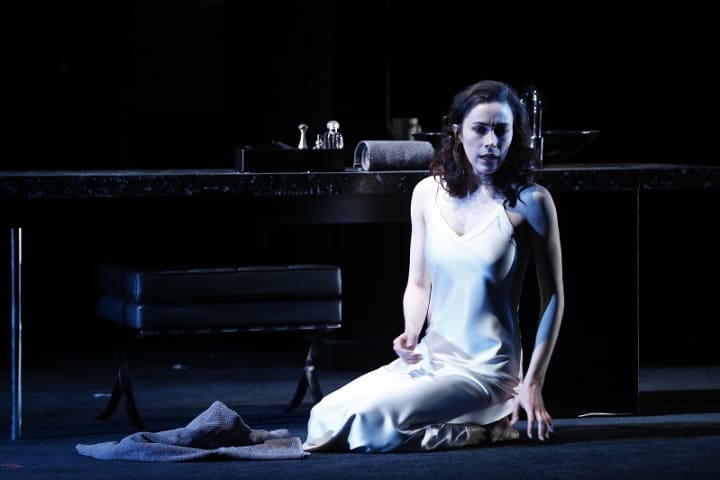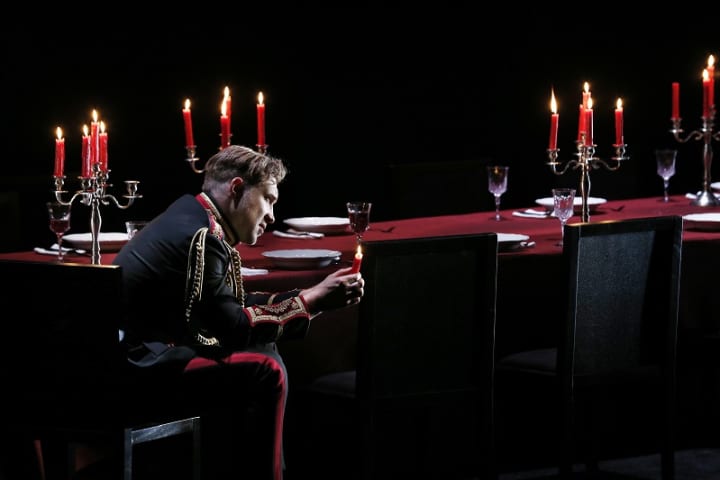Ahead of the Macbeth season, Rodney Afif tells us how his role symbolises a change in public opinion.
What is Macbeth about?
Macbeth is about a flawed character who plays out his personal tragedy. It’s about ambition that goes awry. It’s a cautionary tale about overstepping your lot and going beyond what’s reasonable in achieving your ambitions.
How does the story of Macbeth resonate in the world we live in today?
Just this morning as I was coming into rehearsals, there was a story about the latest White House crisis. It was fascinating, because Ross has a line in the play, Malcolm asks, ‘What’s the newest grief?’ Because Ross is reporting about Scotland. And he says the line, ‘That of an hour’s age doth hiss the speaker. Each minute teems a new one.’ So, every minute, there is something new to go wrong. On the radio this morning, the reporter said that the Republicans were looking for a crisis-free day, and someone else mentioned, ‘Actually, they’re looking for a crisis-free hour.’ So it’s happening thick and fast, and that very much resonated with me because of Ross’ line. There is definitely resonance of a regime plagued with crisis.
How are design concepts influencing this production of Macbeth?
There are some moments from the text that traditionally happen in large settings like a palace or a court, which Simon and Shaun have contracted into a domestic setting in this production. This changes the way the piece is played. I think it will be fascinating to see how small we can make our acting whilst still having to reach the back of the auditorium. They’ve shrunk it down and sped it up and the revolve assists that. Some previously more cavernous scenes are being played in a more domestic setting.
What would you want to tell people about Ross?
Initially I struggled with what Ross symbolised in the show. Having being aware of Roman Polanski’s depiction of Ross in his film version as a shady figure and one of Macbeth’s conspirators who worked to continue the tyranny and kill Lady Macduff. We haven’t gone for that reading and I think it’s right not to. I think Ross really symbolises the change in public opinion. There’s a key scene where Macduff, after the murder of Duncan, makes his decision not to go to the coronation of Macbeth. Ross decides to stay with Macbeth in his court as one of his lords, and then there is a turning point where he decides to leave and bat for the other side. That’s his function in the play – to indicate the change in mood and public opinion. He’s a messenger as well and is constantly delivering news about what’s going on throughout the show. He’s pivotal in alerting Malcolm when to strike in retaliation.
Macbeth plays at Southbank Theatre from 5 June. Book now.
Published on 30 May 2017





